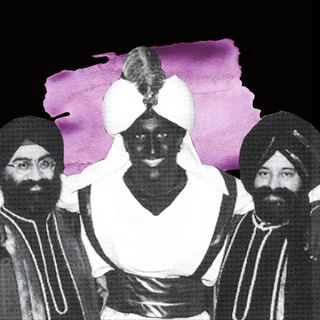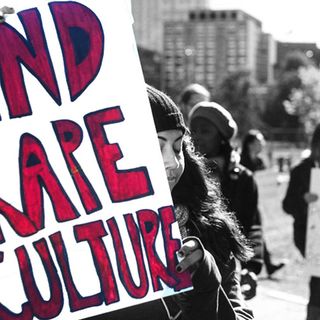
The Importance of Orgasms, from Women Who Don’t Have Them
“Since I do enjoy the whole process of sex, I do not feel that orgasms are a mandatory part of a successful session,” says Vishakha, 19.

Pop culture is filled with exaggerated female orgasms, from Mills & Boon to movies such as B.A. Pass to porn — none of them quite what real women experience on a daily basis. An orgasm, often painted as the end-all, be-all of sexual experience, is a mere indicator of sexual pleasure. Peddling an orgasm as the ultimate goal for people who engage in sex, while exalting its (exaggerated) benefits for mental and physical health, creates a one-note definition of enjoyment of intimacy, and leaves a large group of people who don’t have orgasms, for whatever reasons, out.
An orgasm-centric discourse around physical intimacy might take away from what actually needs to be prioritized when opening up one’s own body to someone — ensuring comfort, safety and enjoyment during the process, rather than chasing an elusive release at the end.
“I came to know about orgasms when my friend asked me ‘Did you cum?’ –after I told her about my first experience with sex. I researched about what they are only later on, after this partner of mine commented after sex, rather dissatisfied, ‘You were so dry,'” Vishakha, 19, said. From a young age, Vishakha, who says she has been struggling to know what an orgasm actually feels like, has been told she’ll be “liberated” after having an orgasm, that she’ll just “know” when it happens. “I’ve asked friends, read blogs and I do track some bodily symptoms and I have gotten wet but I do not know whether I’ve felt that feeling in my brain or acknowledged it when it’s happening — though, I’ve tried paying attention,” she says.
Vishakha says she has experienced symptoms such as curling of the toes, clenching of the jaw and shivering during sex, but not the “liberated” mental state she has been told she would feel after having an orgasm. Her sexual partners have also told her she had an orgasm, but Vishakha didn’t think so. “Since I do enjoy the whole process of sex, I do not feel that orgasms are a mandatory part of a successful session,” Vishakha says, adding it’s something she is curious about, but doesn’t feel the need to devotedly seek out.
Related on The Swaddle:
Women’s Sex Drive Fluctuates Throughout the Menstrual Cycle
Vishakha’s experience isn’t uncommon, especially in a society where women’s experiences, especially sexual, aren’t the focus of much discussion, or research. In Indian society, sex, especially for women, exists in both a celebrated and simultaneously taboo space, in which women are fervently discouraged from exploring their sexual urges and desires.
Priya, 25, says her relationship with orgasms is “non-existent.” Growing up in a hostel in south India, she says her exploration of her sexual self occurred mostly in secrecy, in discussions with friends, and mostly through masturbation. Now, she lives with her parents, which makes figuring out orgasms more difficult. “I think the need [to explore sex and orgasms] arises only through curiosity and being exposed to a kind of life at least outside of my family circle where you’re allowed to talk about these things,” Priya says, adding her upbringing made it especially difficult to “come to terms with sex as an okay thing.”
N.A., 17, says her parents won’t let her explore sex before marriage, while her friends constantly push her into finding out what an orgasm feels like. At 15, when she first found out about orgasms, she thought they were abnormal and weird because she had always been asked by her parents to stay away from anything attached to sex. “I was scared to do it with a partner. And I tried fingering but I don’t know how to do it even now,” N.A. said, adding that having an orgasm is neither a priority nor a basic need for her. Viewing her friends glorifying their own sexual satisfaction makes her feel the need to have one now, she added.
“But I feel it’s a curse in society,” she said. “[Arousal] happens when you see someone hot or when someone is flirting. Actually, my point is we can’t have [orgasms] even if we want to. Because we’ve been taught that way. We’ve been told to stay away from it.”
Even when sexual pleasure, solely in the form of orgasms, seems within reach, women find themselves questioning the feeling, unable to match the reality to the glorious illusion we’ve been told orgasms are.
“Having read a fair share of Mills & Boon, I think the word orgasm and the impact it had on your body I understood only in words spoken by others. Safe to say it still is like that till today. Since I only experience an orgasm when I masturbate, I don’t still know if that’s what a real orgasm feels like,” S., 35, says. “I still don’t know what an experience of a mind-blowing, leg-[shaking], dark-chocolate-like-satiation orgasm feels like.” S. has been informed by the literature that exists on orgasms, which paints it as an out-of-body experience, leading her to feel her self-pleasure isn’t enough, and that there is more intense, out-of-reach pleasure to be had. “[My orgasms] do make me wonder what I’m missing out [on].”
F.H., 30, too, doesn’t know if any sexual pleasure she feels can be called orgasms. “When one masturbates, there is probably a sense of a peak experience after which you want to drop the activity and move on — perhaps an orgasm, but I don’t think any pleasure in masturbation compares to pleasure in actual sex and intimacy, so I don’t understand how to compare a small peak that matches with the mythology, with way larger peaks, but which don’t come with the signature quality of that giant release that everyone is so fond of talking about,” she says. “Male partners, as the legend goes, always ask about orgasms, and whether you are having them, and whether that was one, and so on, and I don’t really know.”
Related on The Swaddle:
Heterosexual Sex Has a Problem: Half of the Participants Are Faking It
F.H. has approached having orgasms in a trial-and-error way, trying out different positions, different paces, different partners. Talking of the sexual pleasure she experienced during these times, she says, “Also, if any of these times have ever been ‘actual orgasms,’ then I’m not sure that I want to try to recreate them in any-which-way and have them at EVERY SEX to assert my place at the table; I am quite happy with sex itself and how pleasurable it already is.”
F.H. says she might not know enough about orgasms to recreate them, either in private or with someone. “Perhaps it is actually deeply mysterious and taking a science experiment approach is not going to solve it for me.”
This misinformation, taboo, and pressure to have brain-wracking orgasms all the time can be alienating, says A.S., 23, who, for the most part, identifies as asexual. She says her “sexuality is fluid; it always bounces from having little to no interest in sex. I don’t feel the urgency to have sex or be intimate with people for the most part and that’s pretty much why I’ve made peace with it.” The constant barrage of pop culture references to sex and orgasms, and conversations with friends that also center around these topics informed A.S. that orgasms were “the best feeling in the world,” she said. “I feel like I’ve been left out and I keep wondering if there’s something wrong with me. I’d even look up orgasm disorders and be convinced I had one.”
A.S. said she tried to achieve orgasms through masturbation, using vibrators her friends bought her. “I looked at masturbating with a very scientific approach, and mainly tried it out just to see how it physically felt, not because I felt horny. But it didn’t do anything for me and I’d just be bored after a couple of tries,” she said. “I even bought lube to make the process smoother because I was hell-bent on trying to orgasm because I thought it would improve my physical wellness.”
A.S. says attempting to orgasm felt like “trying to walk through a closed door,” speculating it has to do with low sex drive for her. Despite being aware and comfortable with her asexuality, A.S. says, “I’m constantly always ricocheting between knowing I don’t care for sex, knowing there’s absolutely nothing wrong with that, knowing that most of the time sex doesn’t even cross my mind and feeling like I’m missing out, feeling insecure about being a virgin.” She adds she is open to the possibility of being intimate with someone in the future, but she’s unbothered for now.
Even in relationships, the pressure to have an orgasm can be harmful. M.K., 24, who identifies as queer, says she has struggled with the concept of orgasms and has tried multiple ways to achieve them — alone, and with her partner. She says, “the need arises when every time my partner orgasms and asks me whether or not I’ve orgasmed too. And it’s so disappointing for the other person (more than me) when they know that I haven’t.”
“I just think it’s overrated and some people just don’t have them. It’s just the societal pressure that made me go after it all along. But now I’ve reached a point where I don’t think about them anymore. I just enjoy the process.”
Rajvi Desai is The Swaddle's Culture Editor. After graduating from NYU as a Journalism and Politics major, she covered breaking news and politics in New York City, and dabbled in design and entertainment journalism. Back in the homeland, she's interested in tackling beauty, sports, politics and human rights in her gender-focused writing, while also co-managing The Swaddle Team's podcast, Respectfully Disagree.
Related


The Buzz Cut: Justin Trudeau ‘Didn’t Know’ Brown Face Was Racist in 2001
